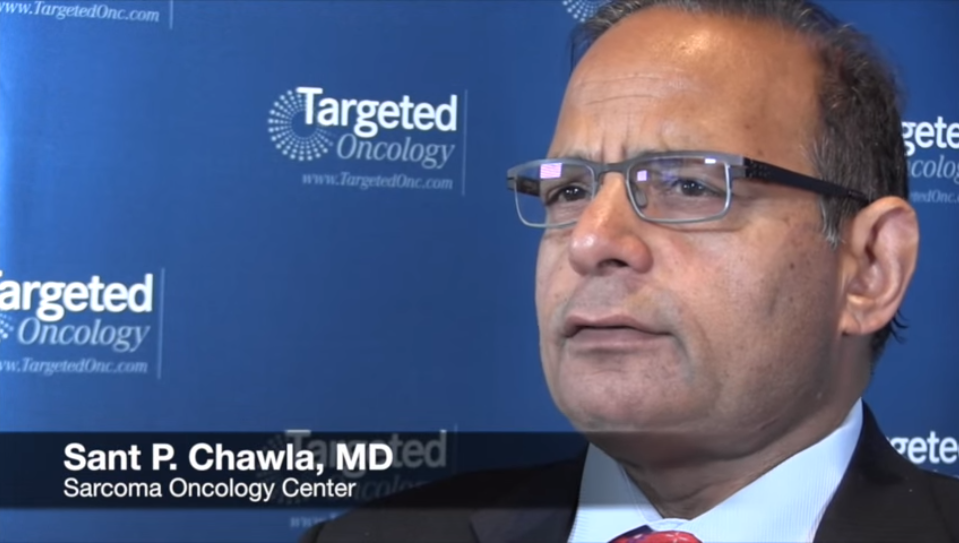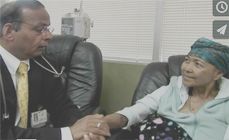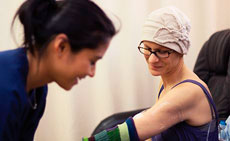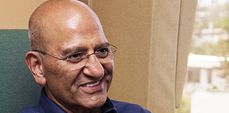 Treating sarcoma can be challenging for doctors who are not familiar with the disease. Additionally, there are numerous subtypes, each with its own characteristics to further complicate the diagnosis process. Rhabdomyosarcoma, a soft tissue sarcoma that develops in muscles, is a subtype often found in children. Deeply embedded and undetectable, the sarcoma usually isn’t diagnosed until the disease is advanced and requires immediate treatment.
Treating sarcoma can be challenging for doctors who are not familiar with the disease. Additionally, there are numerous subtypes, each with its own characteristics to further complicate the diagnosis process. Rhabdomyosarcoma, a soft tissue sarcoma that develops in muscles, is a subtype often found in children. Deeply embedded and undetectable, the sarcoma usually isn’t diagnosed until the disease is advanced and requires immediate treatment.
A physician, skilled in sarcoma detection, is the most qualified to treat the condition before it advances further. While some symptoms can be vague and possibly attributed to one of several other diseases, specialists, such as the physicians of the Sarcoma Oncology Center, are experts in the subtleties of sarcoma including rhabdomyosarcoma.
Cancer is life-changing and unexpected. The Sarcoma Oncology Center is dedicated to helping their patients cope with cancer and will always guide a patient through the treatment process before a plan is implemented.
Different Types of Rhabdomyosarcoma
Rhabdomyosarcoma is classified as a category of soft tissue sarcomas that develops in the muscles. It happens to be the most common soft tissue sarcoma in children and can manifest itself anywhere in the body.
Two types of rhabdomyosarcoma that appear more frequently in children:
- Embryonal: Most common variety developing usually in the area of the head, neck, or genital or urinary organs.
- Alveolar: Usually develops in teens occurring in arms, legs, chest, abdomen, genitals, or anal areas.
Each has a unique set of characteristics that specialists like Dr. Chawla and Dr. Sankhala know how to treat.
Characteristics and Symptoms
The signs and symptoms of rhabdomyosarcoma that develop depend on where the cancer forms presenting as:
- Headache
- Bulging eye
- Persistent lump or swelling (with or without pain)
- Bleeding from nose, mouth (from the throat) rectum, or vagina
- Urination or constipation problems
- Blood in the urine
Rhabdomyosarcomas that form as a lump near the surface of the body tend to be detected early. You must consult your doctor immediately if your child displays any of the indicated symptoms.
There are a number of steps and procedures to take before a final diagnosis, including imaging tests and a biopsy. Most oncologists, including Dr. Chawla and Dr. Sankhala at Sarcoma Oncology, are very diligent in ensuring that patients receive thorough explanations and support during treatment.
Developing a Treatment Plan
Different types of treatments are available for children with soft tissue sarcoma. Some treatments are standard while some could be new drug therapeutics in clinical trials. Children are often excellent candidates for these trials since their cancers are typically rare.
Our Specialists Can Help You
If your child received a cancer diagnosis and you seek a second opinion or advice from a sarcoma specialist, contact the physicians at the Sarcoma Oncology Center. The center’s doctors are internationally known for their expertise in sarcoma care and advanced treatment approaches. We would like to help you. Call us today at 310-552-9999 for a consultation.





